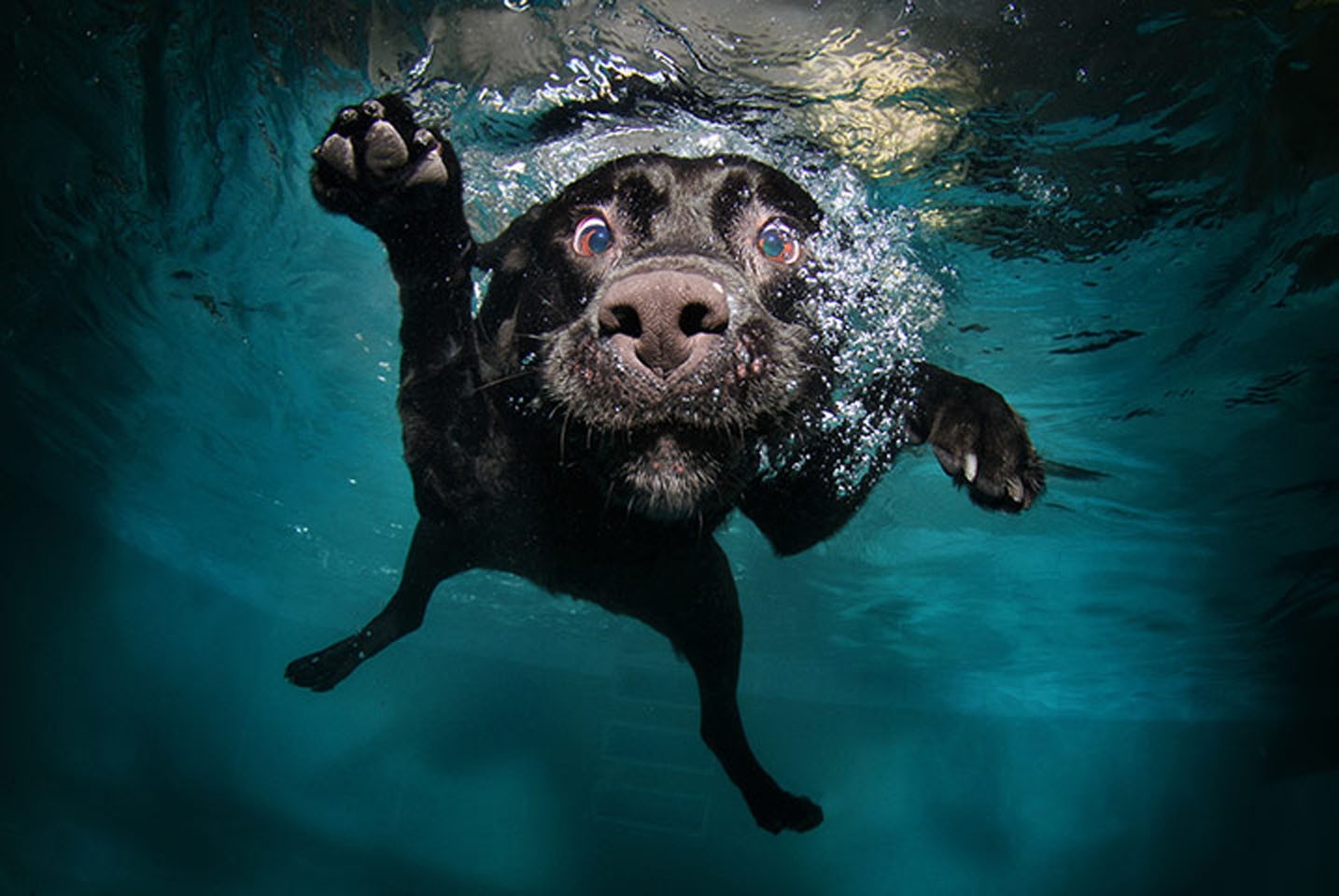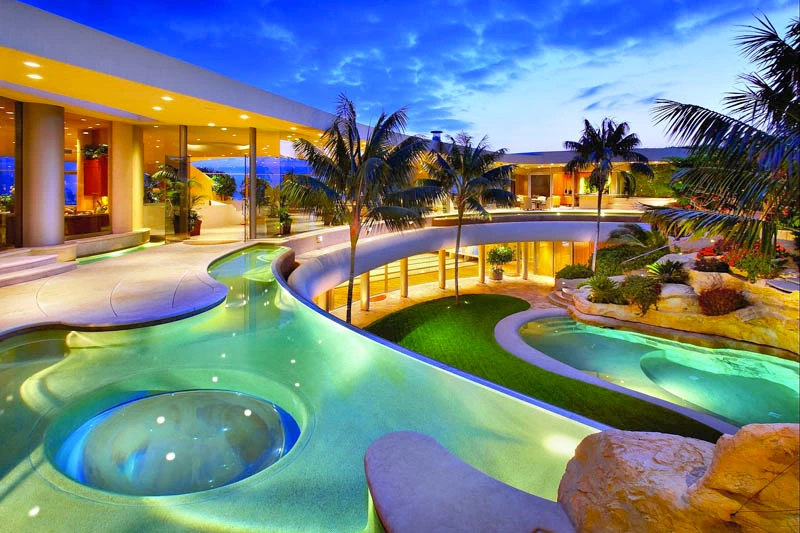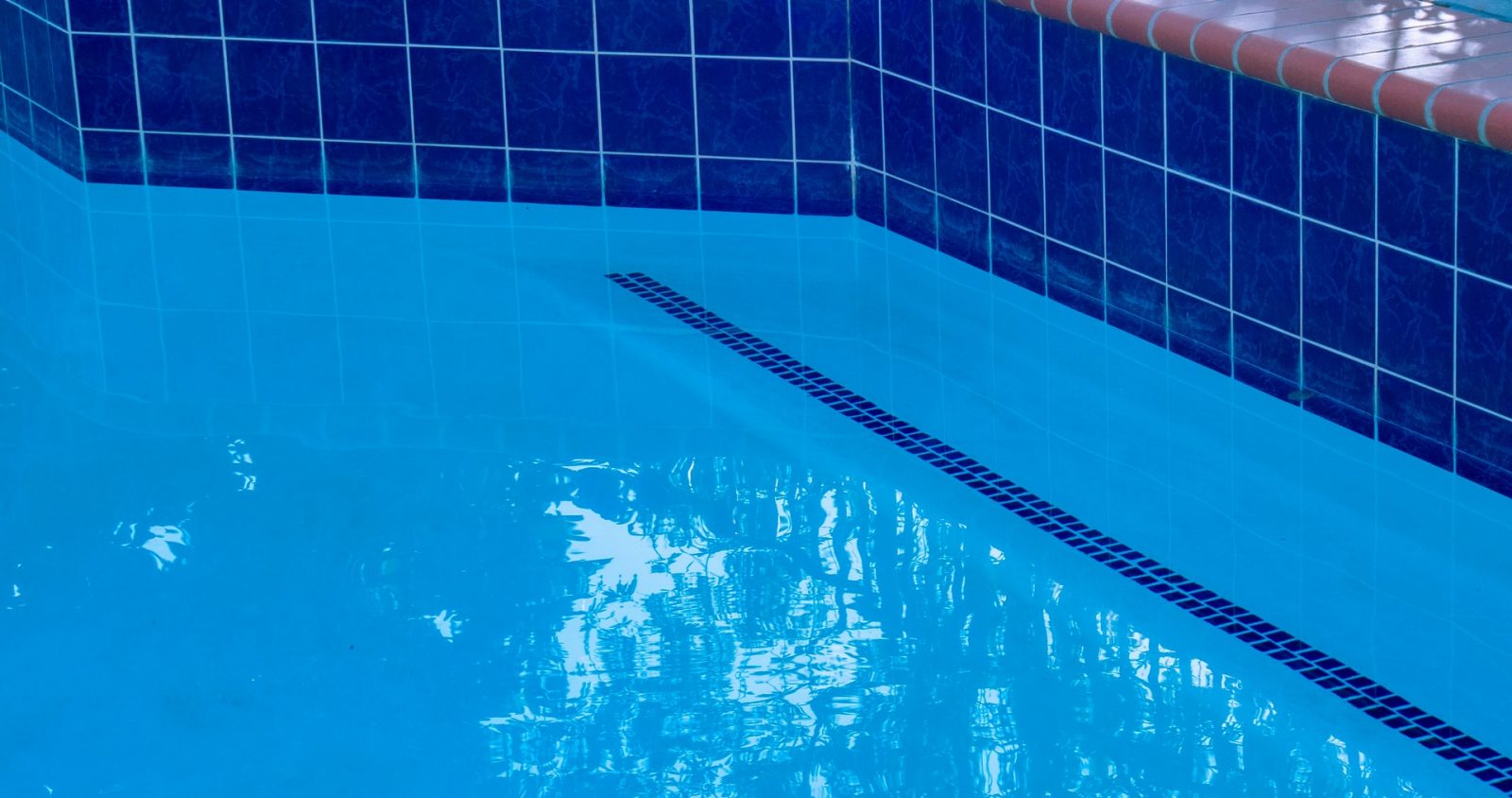A swimming pool is an important amenity for exercises such as swimming laps and aerobics. These amenities give opportunities for educational purposes, various competitions, swimming lessons, lifeguard training, and other training.
Furthermore, it provides health benefits for people with chronic diseases such as asthma, heart disease, and other medical conditions.
However, it would be best to keep in mind that the most important thing is to keep your pool clean now and then. It must be sanitized frequently, monitor the water level, the pH, alkalinity, and the chlorine measurement to ensure safety and health to all swimmers.
Yet when it is time for the monsoon season in Arizona, dust storms can ruin all your efforts in keeping your swimming pool clean. It is an inevitable occurrence, and the best you can do about it is to clean your pool after the storm.
Here are some procedures you can follow to restore your swimming pool’s freshness and cleanliness after a dust storm.
Ensure Your Filter Is Working Properly
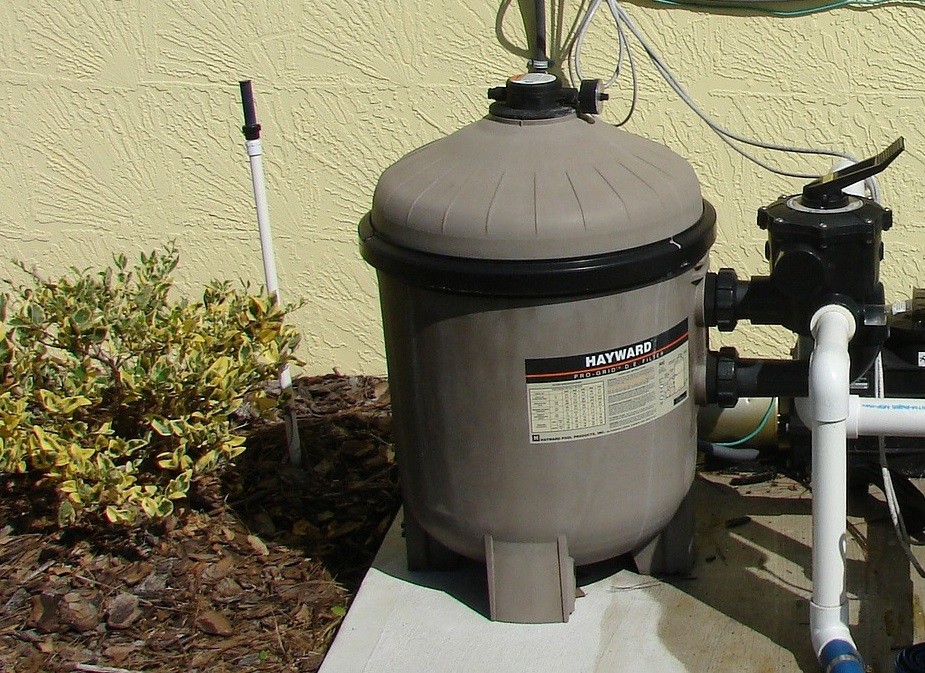
The usual problem that pool owners may experience is having debris or small particles entering the pool filters, resulting in malfunctioning filters due to clogging and leaking.
To maintain good pool condition, you must ensure that debris is removed so the filter will run properly. Plus, this can also prevent the growth of algae in your pool.
Furthermore, you must constantly assess your filter pressure. If it runs at approximately 8-10 psi higher than the clean starting pressure, it means that it is time to clean your pool filters.
Brush and Skim Your Pool – Check Your Filter Basket
Skim the pool to remove small particles, leaves, and other materials. After the intense dust storm, this section of your pool care practice can prevent the system from having issues of blockage or clogging.
If you use a brush, you can increase the speed of the cleaning process in removing dirt or other materials going to the drainage system of your pool. Using a manual or automatic vacuum is also a good idea in removing dirt because of its speed and accuracy.
It also helps eliminate even small particles which cause stains on your pool surface. Further, debris to your filter basket should maintain regular cleaning to keep the system well function.
Shock Your Pool
You should expect that there will be algae entering your pool filters due to dust storms. It cannot be controlled because even without dust storms growth of algae in your pool can be a problem that should be addressed immediately to keep the pool safe.
Shock is an essential step that ensures your pool is adequately sanitized. In addition, if you have a personal chlorine generator, it can give an improved feature in increasing the amount of chlorine provided by the cell for a short period.
Run Your System Overnight
Brushing and shocking systems can be useless in cleaning your pool if the water is not filtered and circulated. If you allow your system to run for long hours as a part of pool care, the debris will surely be removed from the pool filter, particularly the organisms that have been affected by the shock.
Test Your Water and Water Level
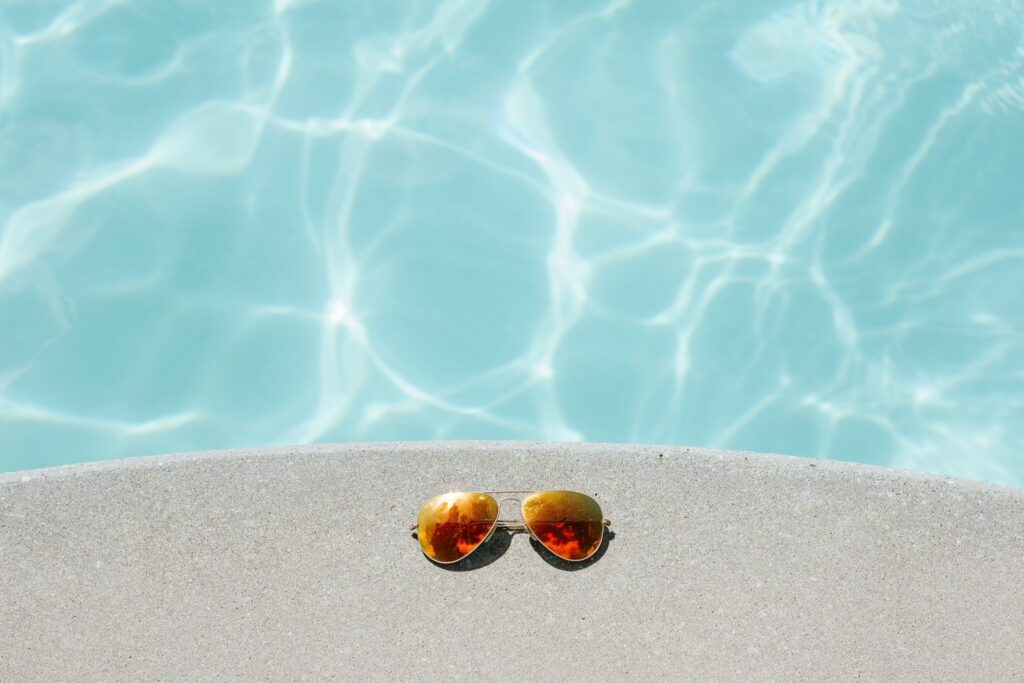
General reasons you experience an imbalance of your pool water are due to rainfall and debris that interfere in your pool. Evaluating your pool during pool care aid you in what you need to do to ensure your swimming pool is chemically balanced and safe to use.
Ways to test your water during pool care after the storm are using the test kit or test strips through your home or bringing your water sample to local pool services to test it for free.
Regularly monitor your water level if it does not go higher or above the skimmer. If this happens, backwash the sand filter and open the drain system so water will gradually flush out.
Check PH and Alkalinity Levels
Acid rain is a chemical that forms a component like sulfur dioxide and nitrogen oxides that releases into the air, which causes your pH level to drop. However, alkalinity will help resist the acidic changes in your pH level and neutralize the acid.
Inspect Your Equipment
Frequently check your equipment before turning on your pool. Check the pump motor and see if there is any sign of water damage. If you notice some dryness during your pool care routine, turn your pump motor back on and let it run your filtration and circulation system.
If wet or damages are seen on your equipment, avoid turning your pump system on and do not attempt to turn on your equipment yourself. Better to seek assistance from a pool company or pool maintenance to inspect your equipment.
Some Products Helps You Clean Your Pool After Storm
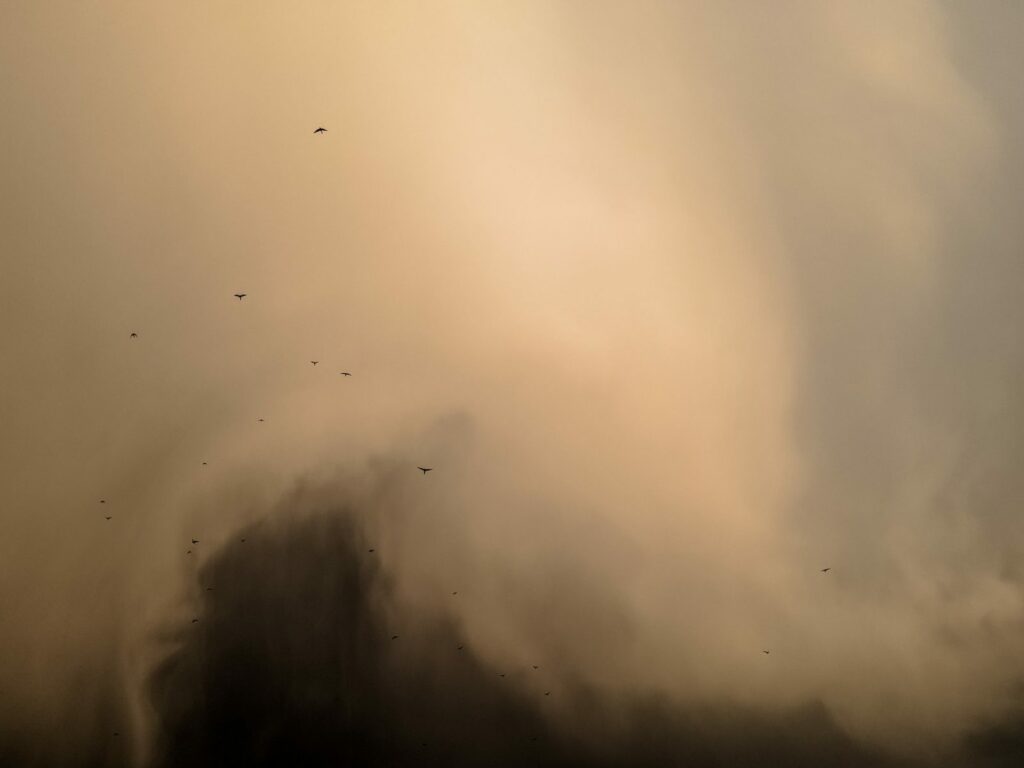
Dust storms can change the color of your pool besides the chemical balance of your water. The common symptoms you may experience during a dust storm include skin irritation or itchiness, burning eyes, throat irritation, coughing or sneezing, difficulty breathing, or asthma attack.
Here are some products you need to enable your swimming pool to become healthy and safe for swimmers.
Hy-Clor Flocculent
To have an effective result, apply this flocculent with the combination of a super shock to fix your muddy pool quickly. Use these products when the floor of your pool is covered with too many particles or algae from the water.
Hy-Clor Super-Floc
These flocculants have high strength and fast-acting liquid solutions to fix your pool. It gives you sparkling clear water and improves filter performance.
Moreover, hy-clor super-floc is a perfect solution to your pool. It quickly fixes and removes particles and algae that interfere with your pool water. Apply this to extreme dirt, sandy, and cloudy pools.
Health Precautions
The following precautions will guard yourself and minimize the adverse effects of dust storms.
- Avoid outdoor activities. Or you can spend a few hours outside.
- To prevent yourself from dust, cover your nose and mouth with a mask or wet cloth to reduce exposure to dust particles. The recommended mask to wear is P2 or P3, which you can purchase locally or from hardware stores. This blocks small particles when properly covered to your nose and mouth.
- Avoid extreme exercise, especially if you have difficulty breathing or other respiratory conditions.
- Stay inside with closed doors and windows.
- If possible, stay in an air-conditioned area.
Therefore, you should regularly check your swimming pool with or without dust storms to keep the pool safe and healthy. Also, always keep your equipment in good condition so your pool will be immediately fixed in case of an emergency.


